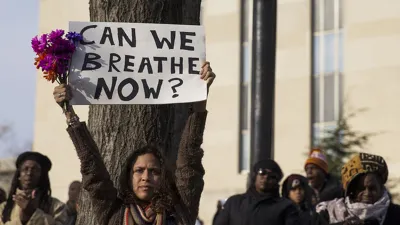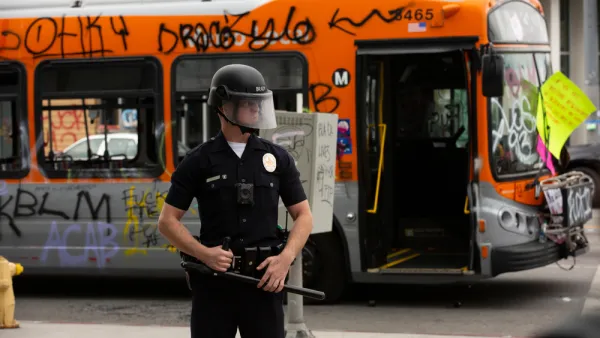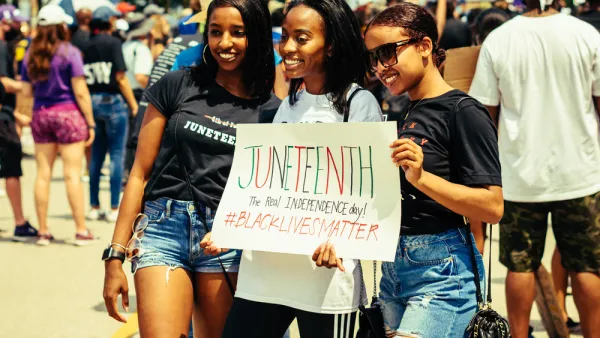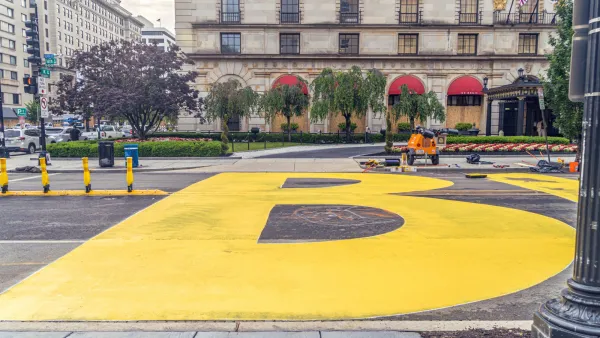An urban planner in Vancouver defines the roots of racism in city building, and calls on urban planners to be more effective anti-racist allies.

Amina Yasin, an urban planner and planning commissioner in Vancouver, writes for The Tyee with four recommendations for reckoning with the history of racism in urban planning.
As an urban planner, I’ve been contemplating this problem and the ways the planning profession has had its knees in the necks of Black people through policy, top-down design approaches and unacknowledged white privilege. These factors, along with public space enforcement and anti-Blackness have been suffocating Black communities for decades.
Taking the kind of action that effectively accounts for planning's role in setting the stage for the racist realities of the day might require a re-evaluation of causes that seemed in solidarity with anti-racist action, according to Yasin.
Given the number of Black people profiled and murdered on our streets, how can urbanists remain singularly focused on fighting inanimate objects — like cars — while actively ignoring human rights, and silencing advocates who point out that streets aren’t in reality for everyone? Perhaps systemic racism, in which ableism is entrenched, is the greatest enemy to cities and not cars?
In making the point that some ostensibly progressive causes fall short of effective anti-racist action, Yasin is reiterating a point made by other Black advocates in response to the recent high-profile tragedies of police violence, and it's a point that bears repeating. With that foundation laid, Yasin lists four actions for planners to take to deliver on anti-racist intentions, with more detail included in the source article:
- Recognize your role.
- Divest from the theory of Crime Prevention Through Environmental Design.
- Defund policing.
- Abolish ‘communicide’ urban planning.
That last recommendation deserves some extra attention as a source of potential complication in the messaging that has emerged in recent weeks. While some urbanists and planning experts have pointed to the history of exclusionary zoning as a racist cause, with effects including segregation and poor economic and public health outcomes, other advocates have been pushing back on upzonings and other forms of new, planned density as detrimental to local communities, especially low-income and communities of color.
"An immediate anti-racist action that we can take is to stop systematically 'revitalizing' predominantly Black and Indigenous communities, while seeing other neighbourhoods as being the pinnacle of peak livability or perfection," writes Yasin.
FULL STORY: Whose Streets? Black Streets

Analysis: Cybertruck Fatality Rate Far Exceeds That of Ford Pinto
The Tesla Cybertruck was recalled seven times last year.

National Parks Layoffs Will Cause Communities to Lose Billions
Thousands of essential park workers were laid off this week, just before the busy spring break season.

Retro-silient?: America’s First “Eco-burb,” The Woodlands Turns 50
A master-planned community north of Houston offers lessons on green infrastructure and resilient design, but falls short of its founder’s lofty affordability and walkability goals.

Test News Post 1
This is a summary

Analysis: Cybertruck Fatality Rate Far Exceeds That of Ford Pinto
The Tesla Cybertruck was recalled seven times last year.

Test News Headline 46
Test for the image on the front page.
Urban Design for Planners 1: Software Tools
This six-course series explores essential urban design concepts using open source software and equips planners with the tools they need to participate fully in the urban design process.
Planning for Universal Design
Learn the tools for implementing Universal Design in planning regulations.
EMC Planning Group, Inc.
Planetizen
Planetizen
Mpact (formerly Rail~Volution)
Great Falls Development Authority, Inc.
HUDs Office of Policy Development and Research
NYU Wagner Graduate School of Public Service




























